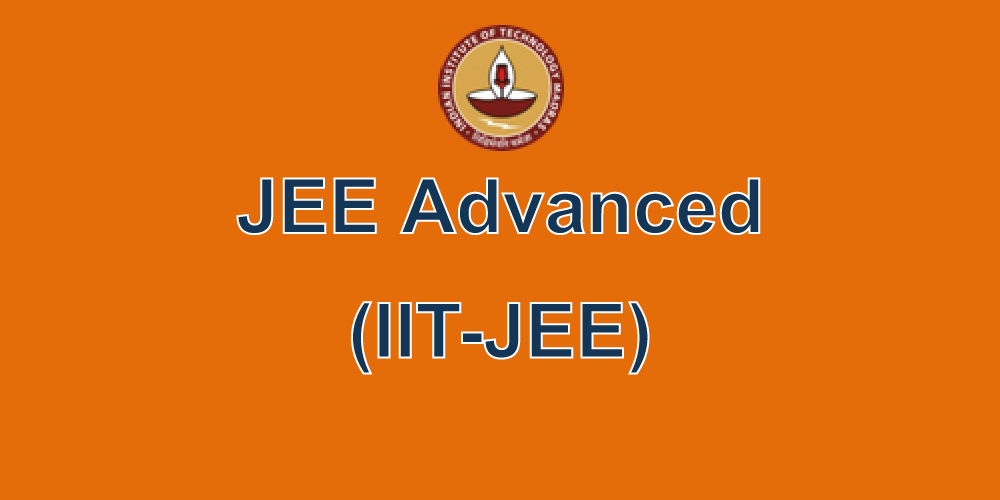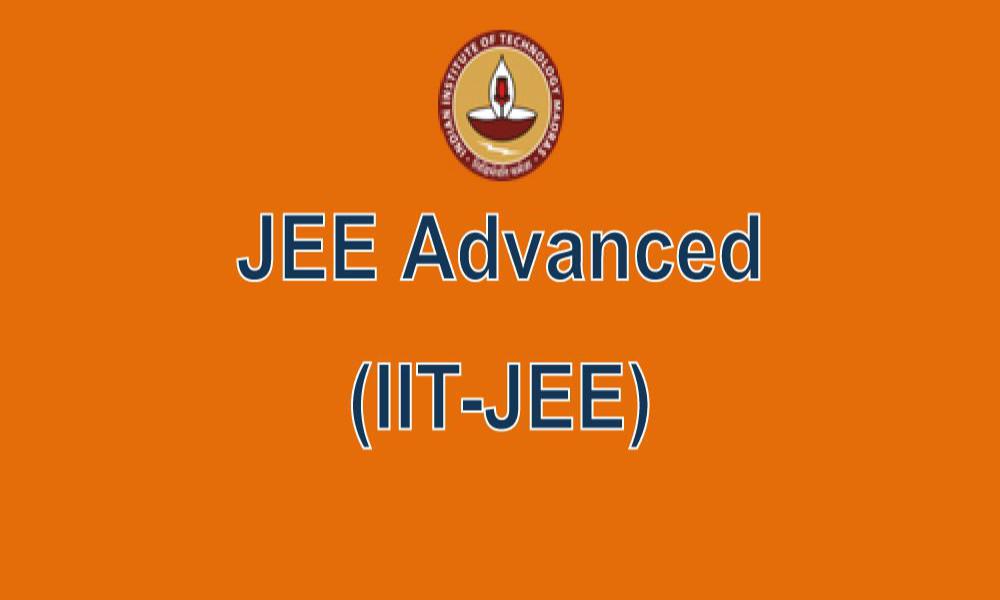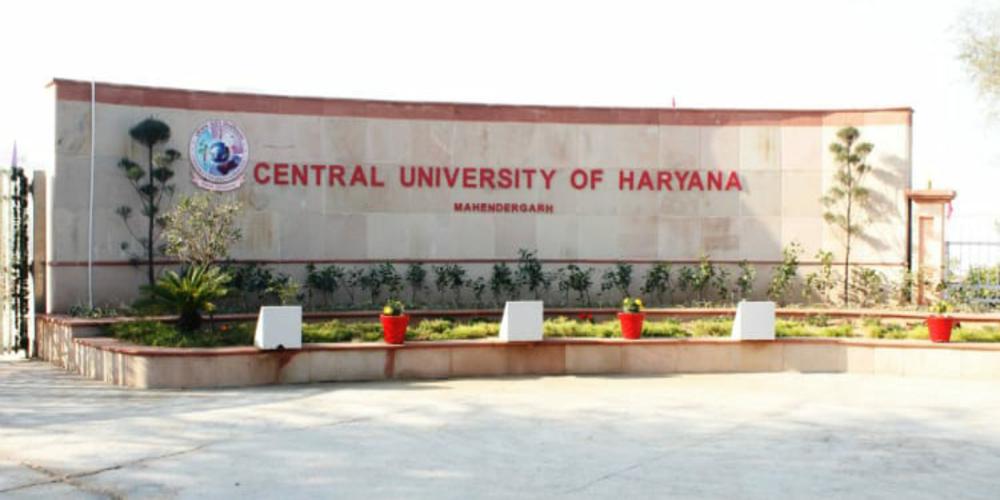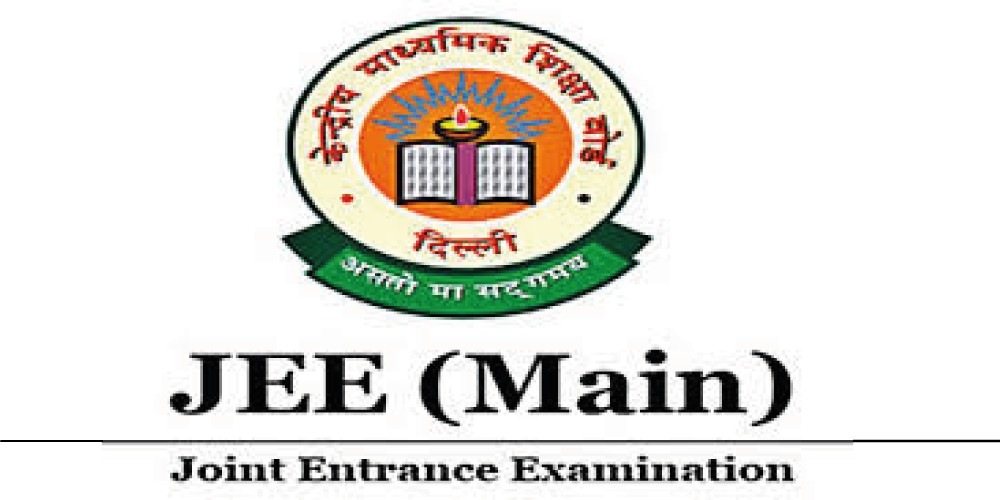
JEE Advance

1.JEE Advance
Joint Entrance Examination – Advanced (JEE-Advanced), formerly the Indian Institutes of Technology-Joint Entrance Examination (IIT-JEE), is an academic examination held annually in India. JEE advanced is an entrance exam written by the shortlisted JEE mains students for admission into IITs. It is conducted by one of the seven zonal IITs (IIT Roorkee, IIT Kharagpur, IIT Delhi, IIT Kanpur, IIT Bombay, IIT Madras, and IIT Guwahati) under guidance of the Joint Admission Board (JAB) on a round bin rotation pattern. It is the sole prerequisite for admission to the Indian Institutes of Technology. Other universities like the Rajiv Gandhi Institute of Petroleum Technology, Indian Institute of Science Education and Research (IISERs), and the Indian Institute of Science (IISc) also uses the score obtained in JEE Advanced as the basis for admission. Any student who was admitted to IIT cannot appear for the JEE-Advanced, but the same is not the case with IISc, IISER, RGIPT and other institutes, because these institutes only use JEE-Advanced scores as a criterion for admission. It has a very low qualification rate (about 9,369 in 479,651 in 2012; ~1.95%). The qualification rate of the JEE-Advanced in 2017 was approximately 0.92% (about 11,000 out of 1,200,000 who applied for JEE Main).
In 2013 the examination, originally called the IIT-JEE, was renamed as JEE (Advanced), and the AIEEE was renamed JEE (Main). From 2017, IIT began conducting JEE internationally for the admission of foreign residents. JEE advanced is an entrance exam written by the shortlisted JEE mains students for admission into IITs.
2.Eligibility
Criterion 1 – Age limit: Candidates should have been born on or after October 1, 1995. In countries where a minimum stint in the armed forces (or allied) for a certain period is mandatory before/after Class XII (or equivalent) exam, the candidate will be given a relaxation of the required number of years. In such cases, the candidate is required to upload a certificate/testimonial issued by competent authority to this effect at the time of registration.
Criterion 2 – Number of attempts: A candidate can attempt JEE (Advanced) a maximum of two times in consecutive years.
Criterion 3 – Appearance in Class XII (or equivalent) examination: A candidate should have appeared for the Class XII (or equivalent) examination for the first time in either 2019 or 2020. However, if the examination Board of Class XII (or equivalent) declares the results for the academic year 2017-18 after June 2018, then the candidates of that board who appeared for their Class XII exam in 2018 are also eligible to appear in JEE (Advanced) 2020, provided they meet the other eligibility criteria. In case, the examination Board of Class XII (or equivalent) declared the results for the academic year 2017-18 before June 2018 but the result of a particular candidate was withheld, then the candidate will not be eligible to appear in JEE (Advanced) 2020.
Criterion 4 – Earlier admission at IITs: A candidate should NOT have been admitted in an IIT irrespective of whether or not he/she continued in the program OR accepted an IIT seat by reporting at a reporting center in the past. Candidates whose admission at IITs was canceled after joining any IIT are also NOT eligible to appear in JEE (Advanced) 2020.
The candidates who paid seat acceptance fee in 2019 but (i) did not report at any reporting center OR, (ii) withdrew before the last round of seat allotment, OR, (iii) had their seat canceled (for whatever reason) before the last round of seat allotment for IITs, during the joint seat allocation in 2019, are eligible to appear in JEE (Advanced) 2020. However, in any
Performance in Class XII (or equivalent) board examination
The candidates should satisfy at least one of the following two criteria for admission to IITs:
- Must have secured at least 75% aggregate marks in the Class XII (or equivalent) Board examination.
- Must be within the top 20 percentile of successful candidates in their respective Class XII (or equivalent) board examination.
The percentile calculation will be done for the required subjects in a single academic year only. Therefore, candidates appearing for improvement in Board examinations can EITHER appear in one or more subjects and secure 75% aggregate marks after improvement OR, appear for improvement in ALL subjects to be in the top 20 percentile of the corresponding academic year.
The marks scored in the following five subjects will be considered for calculating the aggregate marks and the cut-off marks for fulfilling the top 20 percentile criterion.
1. Physics
2.Chemistry
3.Mathematics
- A language (if the candidate has taken more than one language, then the language with the higher marks will be considered)
- Any subject other than the above four (the subject with the highest marks will be considered).
- For calculation of the total marks for five subjects, if the marks awarded in a subject are NOTÂ out of 100, then the marks will be scaled (up or down) to 100 so that the total aggregate mark is out of 500.
- If a Board awards only letter grades without providing an equivalent percentage of marks on the grade sheet, the candidate should obtain a certificate from the Board specifying the equivalent marks and submit it at the time of acceptance of the allocated seat. In case such a certificate is not provided, the decision was taken by the Joint Implementation Committee of JEE (Advanced) 2020 will be final.
- In case any of the subjects Physics, Chemistry, Mathematics, and Language are not evaluated in the final year (e.g., in a 3-year diploma course), then the marks for the same subject from the previous year/s will be used for calculating the percentage of aggregate marks.
- For candidates who appeared in the Class XII (or equivalent) Board examination for the first time in 2019 and reappeared in ALL subjects (for whatsoever reason) in 2020, the best of the two performances will be considered.
- If a Board gives aggregate marks considering both Class XI and Class XII examinations (in the 10+2 system), then only Class XII marks will be considered. If a Board gives aggregate marks considering the results of all three years of a 3-year diploma or courses of equivalent duration, then only the marks scored in the final year will be considered. Similarly, for Boards that follow a semester system, the marks scored in the final two semesters will be considered.
- If a Board does not give marks scored in individual subjects but gives only the aggregate marks, then the aggregate marks given by the Board will be considered as such.
Regarding the cut-off marks for the top 20 percentile
- The cut-off marks for the top 20 percentile are calculated based on the marks scored by the candidates who pass in their respective boards in the particular year.
- It is reiterated that the top 20 percentile cut-off for the academic year 2020 will be considered for the candidates who pass the Class XII (or equivalent) examination in 2020.
- Similarly, the top 20 percentile cut-off for the academic year 2019 will be considered for the candidates who pass the Class XII (or equivalent) examination in 2019.
- Candidates who appeared in Class XII (or equivalent) examination for the first time in 2019 and wish to (or have to) reappear in 2020 with the objective to qualify through top 20 percentile cut-off criteria, should reappear in all the subjects. For such candidates, the top 20 percentile cut-off for 2020 will be considered.
- In case a Board does not provide information about the cut-off for the top 20 percentile, the candidate will have to produce a certificate from the respective Board stating that he/she falls within the top 20 percentile of successful candidates. If the candidate fails to do so, then the cut-off marks, in the respective categories, for the CBSE will be used.
Regarding the aggregate marks of 75%
- The aggregate marks scored by the candidate in the 2020 Class XII (or equivalent) Board examination will be considered for candidates who pass the Class XII examination in 2020.
- The aggregate marks scored by the candidate in the 2019 Class XII (or equivalent) Board examination will be considered provided the candidate does not reappear in the Class XII (or equivalent) examination in 2020 in any of the subjects.
- If a candidate has passed his/her Class XII (or equivalent) in 2019 and wishes to improve his/her aggregate marks to meet the “aggregate marks of 75% criterionâ€, he/she can reappear for any number of subjects he/she wishes for improvement. The percentage marks in this situation will be calculated by considering the marks obtained in 2019 or 2020, whichever is higher, in the respective subjects, in his/her two attempts in 2019 and 2020.
3.Documents required for registration
- Birth certificate for age proof
- Class XII marks sheet/certificate for 75% cut-off (if available at the time of registration)
- Identity proof
- Citizenship certificate/Passport
- Testimonial (if required)
Architecture aptitude test for B.Arch. Program
Successful foreign candidates, if interested in B. Arch. The program, are required to come to one of the Zonal IITs to write the Architecture aptitude test for B.Arch. Program.
4.Exam Pattern
Candidates can find below the exam pattern of JEE Advanced 2020. Aspirants will understand the types of questions that are asked in the exam, marking scheme, and much more with JEE Advanced exam pattern.
Important Highlights of JEE Advanced 2020 Exam Pattern
- JEE Advanced 2020 is a national level examination which will be conducted as a computer-based test.
- Candidates will have to attempt two compulsory papers of JEE Advanced 2020 – Paper I and II.
- Each paper will 3 hours long in duration. There will only one slot for each paper.
- The questions in the entrance examination will be from the subjects of Physics, Chemistry, and Mathematics.
- The questions will be multiple-choice, numerical, and list match sets in nature.
- There may be some questions that have not one but multiple correct options. For such questions, the candidates will have to select all of the correct options to get the full marks. Partial marks will be awarded if only one or a few of the options are correctly selected. In the case of no attempt, zero marks will be given.
- Some questions will be awarded negative marks for incorrect answers. Candidates will be able to find the details about the marking scheme in the question paper.
The examination will be held in English and Hindi language. During registration, the candidates will have to select their preferred language which cannot be changed later.
- One of the most dynamic qualities about the exam pattern of JEE Advanced is that while the total number of questions always remains the same (54 questions for each paper), the total marks of the examination is open to change.
Paper 1
| Exam Pattern | Section 1 | Section 2 | Section 3 |
| Type of Questions | One or more option | Single-digit integer | Single correct answer |
| Number of Questions | 7 | 5 | 6 |
| Marks | 4 Full mark for the correct answer | 3 Full mark for the correct answer | 3 Full mark for the correct answer |
| Partial Marks | 1 for marking an answer corresponding to each correct option but no incorrect answer is marked | No partial mark | No Partial mark |
| Zero Marks | If not answered | If not answered | If not answered |
| Negative Mark | -2 in all other cases | No negative mark | -1 in all other cases |
| Maximum Marks | 28 | 15 | 18 |
Paper 2
| Exam Pattern | Section 1 | Section 2 | Section 3 |
| Type of Questions | One or more option | Single-digit integer | Single correct answer |
| Number of Questions | 7 | 7 | 4 |
| Marks | 3 Full mark for the correct answer | 4 Full mark for the correct answer | 3 Full mark for the correct answer |
| Partial Marks | No Partial mark | 1 for marking an answer corresponding to each correct option but no incorrect answer is marked | No Partial mark |
| Zero Marks | If not answered | If not answered | If not answered |
| Negative Mark | -1 in all other cases | -2 in all other cases | No negative Mark |
| Maximum Marks | 21 | 28 | 12 |
5.Important Dates
| S. No. | Activity | Date [dd-mm-yyyy]/Time |
| 1. | JEE (Main) 2020 [Computer Based Test by NTA] | 06-01-2020 to 11-01-2020 & 03-04-2020 to 09-04-2020 |
| 2. | Declaration of JEE (Main) 2020 Results | By 31-01-2020 & By 30-04-2020 |
| 3. | JEE (Advanced) 2020 | SUN, 17-05-2020 Paper 1 : 09:00 – 12:00 IST Paper 2 : 14:30 – 17:30 IST |
| 4. | Declaration of JEE (Advanced) 2020 Results | MON, 08-06-2020 |
| 5. | Architecture Aptitude Test (AAT) | FRI, 12-06-2020 |
| 6. | Declaration of AAT results | TUE, 16-06-2020 |
| 7. | Tentative Start of Seat Allocation Process | WED, 17-06-2020 |
6.Some other Institutes
Apart from IITs, there are some more institutes that use JEE (Advanced) ranks for their admission process. They are:
- Â Â Indian Institute of Petroleum and Energy (IIPE), Visakhapatnam
- Â Â Indian Institute of Science (IISc), Bangalore
- Â Â Indian Institutes of Science Education and Research (IISER), Bhopal
- Â Â Indian Institutes of Science Education and Research (IISER), Mohali
- Â Â Indian Institutes of Science Education and Research (IISER), Kolkata
- Â Â Indian Institutes of Science Education and Research (IISER), Pune
- Â Â Indian Institutes of Science Education and Research (IISER), Thiruvananthapuram
- Â Â Indian Institute of Space Science and Technology (IIST), Thiruvananthapuram
- Â Â Rajiv Gandhi Institute of Petroleum Technology (RGIPT), Rae Bareli
Candidates may contact the respective institutes directly for additional information.
7.JEE Advanced 2020 Exam Centers
The list of exam centers of JEE Advanced 2020 will be released by IIT Delhi. Candidates will have to select their preferred exam center of JEE Advanced 2020 while filling out the application form. Since the exam centers are divided into zones, the candidates have to select six cities/towns from a zone of their choice. Since the list of JEE Advanced exam centers 2020 has not been released yet, the candidates can check the previous year cities/town from the table given below. The authorities are expected to add San Francisco as an exam city; however, the allotment of the city into a zone has not been announced yet. There are around 728 JEE Advanced exam centers in 7 zones. JEE Advanced Exam centers are allotted according to the students’ choices which they mark at the time of filling three preferences in the application form. But a different city/ town can be allotted in the same IIT zone under some exceptional circumstance.
All the JEE Advanced Exam Centers are divided into 7 IIT Zones, which are given below:
Note: JEE Advanced Exam 2020 will also be conducted at Dhaka (Bangladesh), Dubai (UAE), Kathmandu (Nepal) and Singapore whereas Addis Ababa (Ethiopia) and Colombo (Sri Lanka) are scrapped from the exam center
Foreign centers where JEE (Advanced) 2020 will be held
Dhaka (Bangladesh), Dubai (UAE), Kathmandu (Nepal), and Singapore.
JEE Advanced Exam Centers 2020 list in detail
| S.No. | Zones | States |
| 1 | IIT Bombay Zone | Goa, Gujarat, Karnataka, Maharashtra, Ethiopia (Outside India) |
| 2 | IIT Delhi Zone | Delhi-NCR, Jammu and Kashmir, Rajasthan, Nepal (Outside India) |
| 3 | IIT Guwahati Zone | Arunachal Pradesh, Assam, Bihar, Manipur, Meghalaya, Mizoram, West Bengal, Sikkim, Tripura, Singapore (Outside India) |
| 4 | IIT Kanpur Zone | Madhya Pradesh, Uttar Pradesh |
| 5 | IIT Kharagpur Zone | Andaman and Nicobar Islands, Andhra Pradesh, Chhattisgarh, Jharkhand, Odisha, West Bengal, Bangladesh (Outside India) |
| 6 | IIT Madras Zone | Andhra Pradesh, Telangana, Kerala, Puducherry, Tamil Nadu, United Arab Emirates (Outside India) |
| 7 | IIT Roorkee Zone | Chandigarh, Haryana, Himachal Pradesh, Punjab, Uttarakhand, Uttar Pradesh, Madhya Pradesh, Sri Lanka (Outside India) |
8.Advanced Application Form 2020
The application form of JEE Advanced will be released in online mode tentatively in the first week of May. Students who will qualify JEE Main 2020 and fulfill all other eligibility criteria as mentioned will be allowed to fill the application form. The following steps are involved in filling the application form,
Step 1 – Registration: Students have to register online at the JEE Advanced portal using their JEE Main Application Number and Password. After login, additional information and details have to be submitted.
Step 2 – Uploading Documents: Students have to upload mark sheets of class 10 and 12 and category certificate if applicable and other required documents.
Step 3 – Payment of Application Fees:Â Students need to pay the application fee after uploading photograph and signature.
| Registration Fee for exam centers in India | ||
| Indian National including (PIO and OCI) | Female Candidates (all categories) | Rs.1300 |
| SC/ST/PwD Candidates | Rs.1300 | |
| All other Candidates | Rs. 2600 | |
| Foreign Nationals | Candidates from SAARC countries | USD 160 |
| Candidates from non-SAARC countries | USD 300 | |
| Registration Fee for exam centers outside India | ||
| Indian Nationals
(including PIO/OCI) |
All Indian Nationals | USD 160 |
|
Foreign Nationals |
Candidates from SAARC
Countries |
USD 160 |
| Candidates from non-SAARC
Countries |
USD 300 | |
Step 4 – Printing of Confirmation Page: Students have to submit the application form after payment of application fees. Students must carefully verify all the details furnished by them before finally submitting the application form. After submitting, take a color print of the application form and keep it safe for all future reference until the admission process is complete. Students need not send the hard copy of the application form to the JEE Advanced office.



